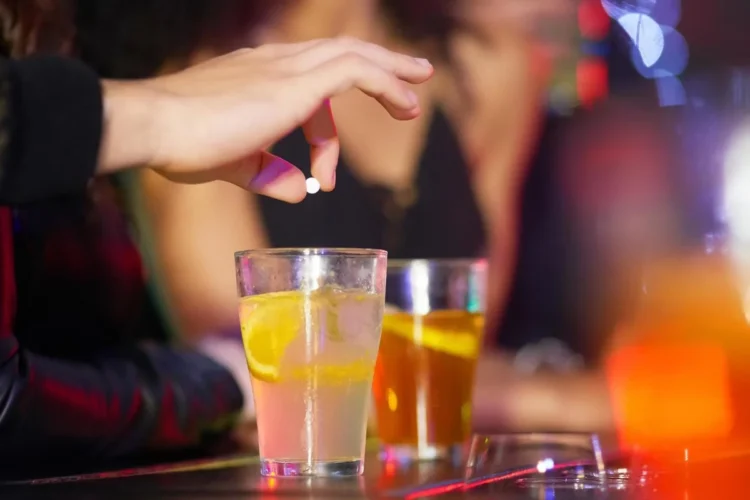By Sheila Mckenzie-
New year revellers are warned to be vigilant as they celebrate the close of the year into 2023, after an estimate 5,000 cases of needle and drink spiking incidents were reported to police forces across the Uk over the past 12 months.
The festive season right into the new year often sees brits drink quite heavily, with many unaware of the relative prevalence of drink spiking throughout the year and making them vulnerable to attack by unsavoury characters.
Police said that of the 4,924 reports made between September 2021 and September 2022, 2,581 were spiking by needle, while 2,131 were spiking of drinks, although these came during just a five-month period from May to September 2022. The remaining 212 reports concerned “other spiking”, such as in cigarettes and food.
Among the 800 forensic tests carried out so far, the most common drugs detected were cocaine, ketamine and MDMA.
However, of the 800 forensic samples taken from victims which police sent for analysis, only 3 per cent were found to “contain a controlled drug that supports a spiking incident”..
The National Police Chiefs’ Council (NPCC) figures reveal that the majority of reports (64 per cent) happen on weekends and 59 per cent take place in pubs, bars and clubs and seven per cent at private premises.
The data also shows that the average age of those reporting spiking incident is 27, with the majority (74 per cent) of victims identifying as female.
Between May and September this year, 2,131 cases of drink spiking were reported to police, along with 212 reports of other spiking such as through cigarettes or food.
The majority of reports – 64 per cent – related to suspected spikings on weekends, with women accounting for 74 per cent of the victims, according to the NPCC.
Deputy Chief Constable Maggie Blyth, the NPCC’s lead for violence against women and girls, said: “Behind each of these reports is a frightened victim whose night out has turned into a nightmare. I know from talking to victims of spiking how utterly terrifying it can be.
“Police forces have increased action against spiking with uniformed and covert operations in bars and clubs, working alongside venues to prevent and investigate spiking.
“Spiking is a complex and challenging offence to investigate. Drugs pass through the system quickly and there is often limited evidence to identify offenders, which means it’s not easy to get these cases to court.
“In order to have the best chance of identifying drugs and bringing offenders to justice, our message to anyone who thinks they have been spiked is to report early and be tested by the police.
“Don’t let the fact that you might have knowingly taken illegal drugs, stop you from reporting. It’s really important that if you do think you have been spiked, and you have taken drugs, that you let the officer know so that they have the full picture.”
Deputy Chief Constable Maggie Blyth, the NPCC lead for violence against women and girls, said: “Behind each of these reports is a frightened victim whose night out has turned into a nightmare. I know from talking to victims of spiking how utterly terrifying it can be.
“Police forces have increased action against spiking with uniformed and covert operations in bars and clubs, working alongside venues to prevent and investigate spiking.
“Spiking is a complex and challenging offence to investigate. Drugs pass through the system quickly and there is often limited evidence to identify offenders, which means it’s not easy to get these cases to court.
“In order to have the best chance of identifying drugs and bringing offenders to justice, our message to anyone who thinks they have been spiked is to report early and be tested by the police.
“Don’t let the fact that you might have knowingly taken illegal drugs, stop you from reporting. It’s really important that if you do think you have been spiked, and you have taken drugs, that you let the officer know so that they have the full picture.”
Following the rapid rise in spiking reports during the autumn of 2021, the NPCC said police forces have increased their focus on spiking with high-visibility police patrols across town centres and areas with a high density of pubs, bars and clubs.
It added: “In a number of towns and cities across England and Wales, uniformed police officers are visiting venues and speaking to visitors and work closely with licensed premises staff.
“Plain-clothed officers are trained to look out for concerning behaviour, monitoring and questioning people who raise suspicions. Control rooms monitor CCTV so that police officers can be sent directly to any suspicious or dangerous situations.
“Officers can also carry out licence checks on taxis, bars and clubs, work closely with welfare organisations such as street pastors, and they help venues to step up their own security efforts such as increasing searches.
“Many venues have given extra training to staff to ensure that all reports of spiking are logged and reported immediately.”
Jayne Butler, chief executive officer of Rape Crisis England and Wales said: “Spiking is a serious crime that can leave victims and survivors feeling frightened and disorientated.
“At Rape Crisis we take every person’s experience of being spiked seriously.”
She said trained workers are on hand to help victims make sense of their feelings, support them to make any appointments, such as medical examinations or forensic tests, and offer advice on reporting to the police.




